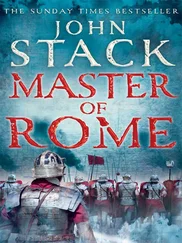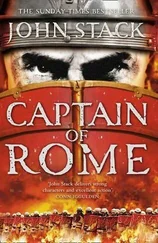Gisco had arisen at dawn and taken his place on the foredeck of the Elissar. It felt good to be in command of a single ship again, a trireme, the type of ship on which he had first cut his teeth as a captain and one which he knew intimately. He had ordered the captain to open the gap between the vanguard and the fleet from the normal distance of one league to two. He remembered sensing the captain stifling a question to the order, but thinking better of it before moving to signal to the other two ships to match his pace. The captain knew the admiral’s reputation well.
Only a year before, when Gisco was besieged in the city of Agrigentum on the southwest coast of Sicily, he had continued to resist against all odds, even though the populace, as well as his soldiers, were starving, and all attempts to alert the Carthaginian fleet about the Roman siege had failed. Gisco’s tenacity had proved to be well founded, as relief did finally arrive, and although the Carthaginians had lost the ensuing battle and the city, tales of Gisco’s fearsome reputation and determined aggression had spread throughout the Carthaginian forces.
Gisco had opened the gap to add a degree of danger to his position. Now if they encountered the enemy it would take the fleet just that little bit longer to arrive in support. He wanted the first encounter of the day to be a reasonably fair fight and not a slaughter. Not from any sense of honour, for Gisco believed that honour was a hollow virtue, but from a need to satisfy his appetite for the excitement of battle. More and more his senior rank of overall commander placed him at the rear of battles rather than the front line, and it had been a long time since he had felt the heady blood lust of combat, a feeling he relished and hoped to experience that day.
‘Run…? Where to?’ Septimus asked. ‘Those three ships obviously haven’t seen us; maybe we should just sit tight. There’s still plenty of fog banks, maybe one will settle over us again.’
‘No, we can’t afford to take the chance. The fog is too fickle. We’ve been lucky once, the lead ships didn’t spot us, but their fleet is bound to. There’s no way fifty ships will cross our bows without someone spotting us. Our only chance is to outrun them.’
Turning away from Septimus, he called back along the ship, ‘Lucius!’ Within an instant they were joined by the second-in-command of the Aquila. ‘Orders to the drum master, Lucius, ahead standard. Once we have cleared the inlet, order battle speed. Get all the reserve rowers up from the lower deck.’ Lucius saluted and left.
Atticus turned to the centurion. ‘Septimus, I need ten of your men below decks to help maintain order. Our rowers may be chained to their oars but I need them obedient and the reserves guarded. I’ll also need marines on the aft-deck – those Punic bastards are going to give chase and I’ll need my helmsman protected from Carthaginian archers.’ Septimus left the foredeck to arrange his command.
‘Runner!’ Atticus commanded.
Instantly a sailor was on hand.
‘Orders to the helmsman, due north once we clear the inlet. Hug the coast.’
The runner sprinted back along the deck. Atticus felt the galley lurch beneath his feet as two hundred oars bit into the still waters of the inlet simultaneously and the Aquila came alive underneath him. Within a minute she had cleared the inlet and the galley hove right as she came around the headland to run parallel to the coastline. As Atticus hoped, there were still some fog banks clinging to the coast, where the change in temperature between land and sea gave the fog a foothold. His helmsman, Gaius, knew this coastline intimately, and would only need intermittent reference points along the shoreline in order to navigate. After fifty yards the Aquila was once again hidden within a protective fog, but for how long Atticus could only estimate. Although he had told Septimus that he planned to outrun the Carthaginian vanguard, he knew that it would not be possible. One ship could not outrun three. He needed an alternative. There was only one.
‘Runner! Orders to the helmsman, once we clear this bank, turn three points to port.’
The runner disappeared. Atticus tried to estimate their position relative to the vanguard. The Aquila was moving at battle speed, the vanguard at standard speed. He judged the Aquila to be parallel to them…now…now ahead. The longer the fog held, the greater their chances.
It lasted another two thousand yards.
The Aquila burst out into open sunshine like a stallion surging from the confines of a stable. At battle speed she was tearing through the water at seven knots, and Atticus noted with satisfaction that within her time enclosed in the fog she had stolen five hundred yards on the Carthaginian vanguard. He was about to turn to the stern of the galley to signal the course change when the Aquila responded to Gaius’s hand on the rudder. ‘Sharp as ever,’ Atticus smiled as the galley straightened on her new course, running diagonally across the strait. Now the Aquila’s course would take her across the bows of the vanguard, Atticus estimated, at no more than three hundred yards. He gripped the rail of the Aquila, feeling the pulse of the ship as the rhythmical pull of the oars propelled it through the water.
‘Ship to starboard…Roman trireme…bearing north.’
With an agility that belied his fifty-two years, Gisco ran to the rigging of the mainmast and began to climb to the masthead. Halfway to the top he glanced up to see the lookout point to the mainland. Following this line, he looked out towards the distant coast. Sure enough, some five hundred yards ahead, a Roman trireme was moving at speed along the coast.
‘Estimate she is moving at battle speed,’ the lookout shouted down after overcoming the shock of seeing the admiral below him. ‘She must have been hiding somewhere along the coastline, invisible behind the fog…’
Gisco stared at the Roman trireme and double-checked his estimate of their course. It puzzled him. ‘That doesn’t make sense,’ he thought, ‘why not run parallel to the coast, why halve their lead on us?’
Gisco clambered down the rigging to the deck twenty feet below. The instant his feet hit the deck he took stock of his surroundings. The crew were frantically clearing the deck for battle. They were good, he noticed, well drilled and efficient.
He could see the captain on the foredeck, no doubt looking for him.
‘Captain!’ he shouted.
The man turned and strode towards him. ‘Yes, Admiral?’
‘What do you make of her, Captain?’
‘Roman for sure, probably coastal patrol, maybe thirty crew and a reduced century of marines. She’s fast, doing battle speed now, and she cuts the water well. She’s lighter than one of our own, maybe a couple of knots faster at her top speed.’
Gisco wondered if the captain had noticed their course. ‘Anything else?’ he asked.
‘Yes, she’s commanded by a fool. If he holds his current course he’s giving us an even chance of catching him.’
Gisco turned away from the captain and spied the Roman galley again. She was ahead, about forty degrees off their starboard bow, but instead of running parallel to the Elissar’s course and maintaining her lead, she was running on a converging course that would take her across the bow of the Elissar at a distance of approximately three hundred yards.
‘Captain, alter your course, two points starboard.’
The captain issued the order to a runner who set off at speed to the helmsman at the stern of the ship. The ship altered course slightly and Gisco nodded with satisfaction when he noted the other two triremes instantly responding to the new heading. He turned again to look ahead. The captain was right on one count – the Roman was a fool; but he was wrong on the other: their odds of catching them were a lot better than evens.
Читать дальше
Конец ознакомительного отрывка
Купить книгу











